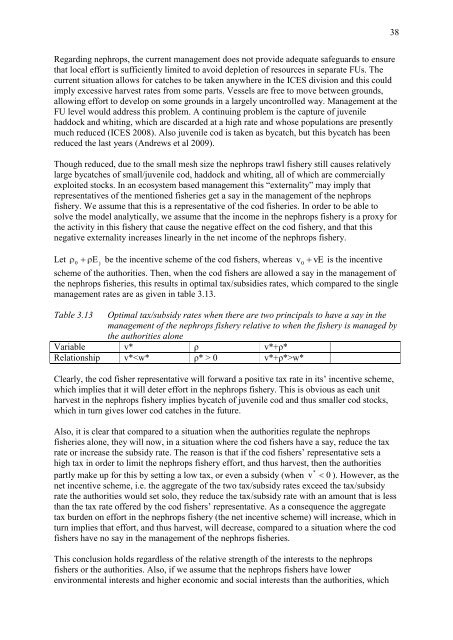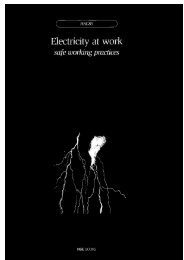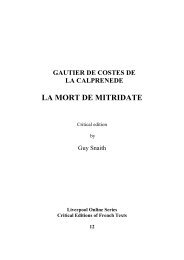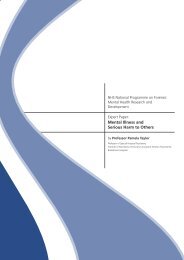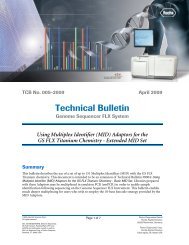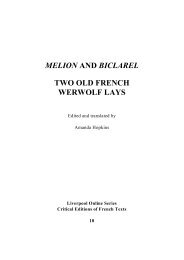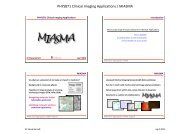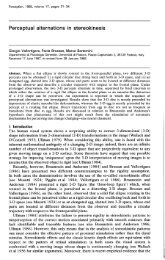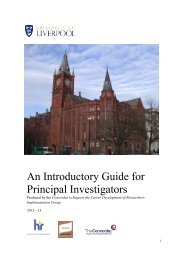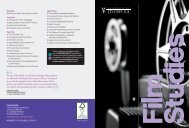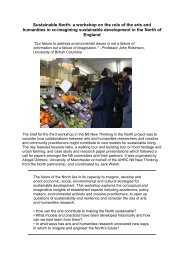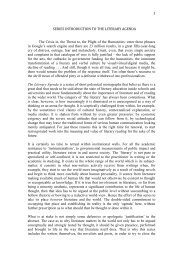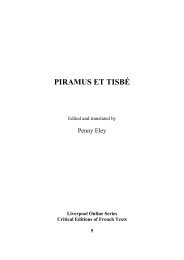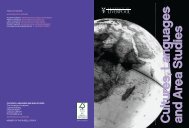Operational tools and adaptive management
Operational tools and adaptive management
Operational tools and adaptive management
Create successful ePaper yourself
Turn your PDF publications into a flip-book with our unique Google optimized e-Paper software.
Regarding nephrops, the current <strong>management</strong> does not provide adequate safeguards to ensure<br />
that local effort is sufficiently limited to avoid depletion of resources in separate FUs. The<br />
current situation allows for catches to be taken anywhere in the ICES division <strong>and</strong> this could<br />
imply excessive harvest rates from some parts. Vessels are free to move between grounds,<br />
allowing effort to develop on some grounds in a largely uncontrolled way. Management at the<br />
FU level would address this problem. A continuing problem is the capture of juvenile<br />
haddock <strong>and</strong> whiting, which are discarded at a high rate <strong>and</strong> whose populations are presently<br />
much reduced (ICES 2008). Also juvenile cod is taken as bycatch, but this bycatch has been<br />
reduced the last years (Andrews et al 2009).<br />
Though reduced, due to the small mesh size the nephrops trawl fishery still causes relatively<br />
large bycatches of small/juvenile cod, haddock <strong>and</strong> whiting, all of which are commercially<br />
exploited stocks. In an ecosystem based <strong>management</strong> this “externality” may imply that<br />
representatives of the mentioned fisheries get a say in the <strong>management</strong> of the nephrops<br />
fishery. We assume that this is a representative of the cod fisheries. In order to be able to<br />
solve the model analytically, we assume that the income in the nephrops fishery is a proxy for<br />
the activity in this fishery that cause the negative effect on the cod fishery, <strong>and</strong> that this<br />
negative externality increases linearly in the net income of the nephrops fishery.<br />
Let 0 E j be the incentive scheme of the cod fishers, whereas v0 vE is the incentive<br />
scheme of the authorities. Then, when the cod fishers are allowed a say in the <strong>management</strong> of<br />
the nephrops fisheries, this results in optimal tax/subsidies rates, which compared to the single<br />
<strong>management</strong> rates are as given in table 3.13.<br />
Table 3.13 Optimal tax/subsidy rates when there are two principals to have a say in the<br />
<strong>management</strong> of the nephrops fishery relative to when the fishery is managed by<br />
the authorities alone<br />
Variable v* ρ v*+ρ*<br />
Relationship v* 0 v*+ρ*>w*<br />
Clearly, the cod fisher representative will forward a positive tax rate in its‟ incentive scheme,<br />
which implies that it will deter effort in the nephrops fishery. This is obvious as each unit<br />
harvest in the nephrops fishery implies bycatch of juvenile cod <strong>and</strong> thus smaller cod stocks,<br />
which in turn gives lower cod catches in the future.<br />
Also, it is clear that compared to a situation when the authorities regulate the nephrops<br />
fisheries alone, they will now, in a situation where the cod fishers have a say, reduce the tax<br />
rate or increase the subsidy rate. The reason is that if the cod fishers‟ representative sets a<br />
high tax in order to limit the nephrops fishery effort, <strong>and</strong> thus harvest, then the authorities<br />
partly make up for this by setting a low tax, or even a subsidy (when v 0<br />
*<br />
). However, as the<br />
net incentive scheme, i.e. the aggregate of the two tax/subsidy rates exceed the tax/subsidy<br />
rate the authorities would set solo, they reduce the tax/subsidy rate with an amount that is less<br />
than the tax rate offered by the cod fishers‟ representative. As a consequence the aggregate<br />
tax burden on effort in the nephrops fishery (the net incentive scheme) will increase, which in<br />
turn implies that effort, <strong>and</strong> thus harvest, will decrease, compared to a situation where the cod<br />
fishers have no say in the <strong>management</strong> of the nephrops fisheries.<br />
This conclusion holds regardless of the relative strength of the interests to the nephrops<br />
fishers or the authorities. Also, if we assume that the nephrops fishers have lower<br />
environmental interests <strong>and</strong> higher economic <strong>and</strong> social interests than the authorities, which<br />
38


